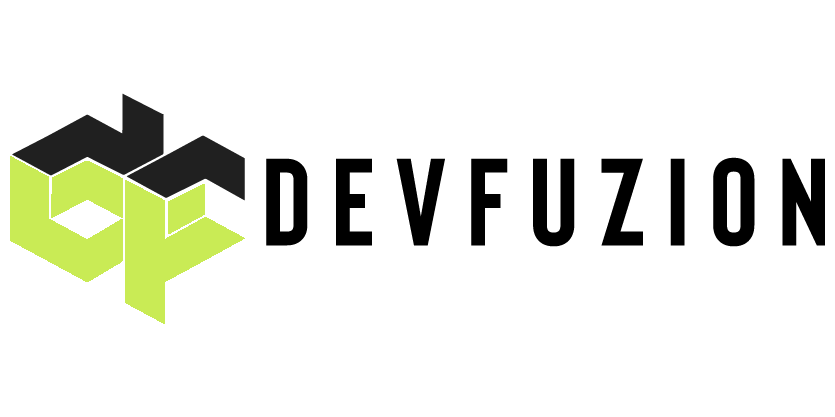Navigating the world of compliance can be challenging for businesses, especially in the Pacific Northwest, where regulations and guidelines are rapidly evolving. In this blog, we’ll explore innovative compliance solutions that can help secure your business while keeping you ahead of the game. With these strategies, you’ll be equipped to handle compliance challenges with ease and confidence.
1. Leveraging Technology for Compliance Management
In the era of digital transformation, leveraging technology in compliance management has proven indispensable for businesses in the Pacific Northwest. With the growing complexity of regulations, tools such as artificial intelligence (AI) and machine learning are increasingly employed to automate and streamline compliance processes. These technologies can minimize human error by ensuring meticulous attention to detail, a crucial factor in maintaining compliance. AI systems can continually assess compliance risks by analyzing large volumes of data in real time, providing businesses with actionable insights automate and accelerate every aspect of their compliance needs. Moreover, these tools enable predictive analysis, allowing companies to preempt potential compliance breaches before they become significant issues. By implementing such advanced systems, businesses not only secure compliance but also gain efficiency and a competitive edge in their operations.
The utilization of technology-driven compliance management solutions also fosters improved decision-making. With machine-learning models, companies can simulate various compliance scenarios, thus better understanding the potential implications of their decisions. This level of foresight is invaluable in quickly adapting to the evolving regulatory landscape. Furthermore, technology simplifies the documentation process, ensuring that all necessary compliance records are meticulously maintained and readily available for audits. Pacific Northwest businesses that integrate these technologies into their compliance strategies can expect enhanced operational efficiency and improved risk management capabilities.
2. The Role of Cloud-Based Solutions
In today’s interconnected world, cloud-based solutions have emerged as a vital component of compliance strategies. Businesses in the Pacific Northwest can benefit from the flexibility and scalability that these solutions offer. Cloud platforms provide a centralized location for data storage and compliance management, enabling easy access to compliance-related documents and facilitating collaboration across different departments. This centralization ensures that businesses remain compliant regardless of employees’ physical locations or work environments, which is particularly crucial as remote work continues to rise. Additionally, cloud solutions often include built-in security features that protect sensitive data and assist in adhering to regulations like GDPR and HIPAA. Understanding how cloud technology supports compliance not only enhances a business’s ability to meet current demands but also positions it favorably for future regulatory changes.
Furthermore, cloud-based compliance solutions are cost-effective. They eliminate the need for substantial on-premises infrastructure investments and reduce maintenance expenses. These solutions can be tailored to meet the specific regulatory requirements of various industries, ensuring that all compliance standards are met efficiently. With automatic updates and support from cloud service providers, companies can remain up-to-date with the latest regulations without dedicating extensive internal resources to compliance tracking and management. Thus, embracing cloud technology not only supports ongoing compliance efforts but also provides significant financial savings and operational improvement.
3. Data Privacy and Compliance
With increasing scrutiny on data privacy, businesses must prioritize innovative solutions to remain compliant with the latest data protection regulations. For Pacific Northwest businesses, understanding and implementing robust data privacy measures has become a key differentiator in maintaining customer trust. Compliance solutions that focus on data encryption, regular audits, and access controls are essential for safeguarding sensitive information against breaches and unauthorized access. As regulations like GDPR and CCPA demand stricter data handling and reporting practices, businesses must take a proactive approach to compliance by adopting comprehensive privacy frameworks. These frameworks are designed to align organizational practices with regulatory requirements, ensuring that data is handled ethically and transparently. By implementing such solutions, businesses can protect themselves from the financial and reputational repercussions of non-compliance while fostering a culture of accountability and trust among stakeholders.
4. Risk Management Strategies
Risk management is integral to a successful compliance strategy, particularly for businesses operating in the Pacific Northwest, where diverse industries face unique regulatory challenges. Identifying and mitigating risks early can prevent costly compliance violations and enhance the organization’s overall security posture. Key strategies include conducting regular risk assessments to identify potential vulnerabilities and implementing controls to address identified risks. Employing continuous controls monitoring further bolsters these efforts by providing real-time insights into compliance risks, allowing businesses to make informed decisions quickly. By establishing a formal risk management framework, businesses can align their operations with compliance objectives, reducing the probability of breaches and ensuring long-term resilience in an increasingly competitive marketplace.
5. Employee Training and Awareness
A comprehensive employee training program is crucial for ensuring that your organization’s workforce is well-versed in compliance requirements and practices. Training should be tailored to different roles within the company to address specific risks and responsibilities. Employees who understand the importance of compliance and their role in upholding it can significantly contribute to maintaining compliance standards across the organization. Regular workshops and training sessions can highlight recent changes in regulations, employing real-world scenarios to demonstrate the consequences of non-compliance. An informed workforce acts as the first line of defense in identifying potential compliance issues, ensuring that compliance becomes an intrinsic part of the company culture rather than an afterthought.
Create an engaging environment for compliance education by supplementing traditional training with interactive tools and assessments. Leveraging online platforms for training allows businesses to reach remote and dispersed teams, ensuring consistent messaging and understanding company-wide. Encouraging open dialogue about compliance concerns and providing resources for additional learning can foster an atmosphere of trust and collaboration. By investing in employee training and emphasizing the importance of compliance, businesses not only safeguard their operations but also empower their people, driving both organizational and personal growth.
6. Workflow Automation for Compliance Efficiency
Automation plays a transformative role in improving compliance processes, particularly in terms of speed and accuracy. By automating routine compliance tasks, businesses can free up valuable resources and focus on more strategic initiatives. Automation tools can handle a variety of tasks, such as data entry, document management, and compliance monitoring, reducing the chance of human error and ensuring consistent compliance with regulatory frameworks. For Pacific Northwest businesses, workflow automation not only increases efficiency but also ensures timely responses to changes in regulations. Automated systems can trigger alerts and reminders for compliance-related tasks, enabling businesses to maintain a proactive stance on compliance management. As a result, companies can achieve greater productivity and reduced operational costs, all while maintaining stringent compliance standards.
7. Collaborative Approaches to Regulatory Compliance
Embracing collaborative approaches to regulatory compliance encourages stakeholder engagement and promotes a culture of accountability and transparency. By involving various departments and stakeholders in the compliance process, businesses can gain diverse insights and foster a sense of shared responsibility. Cross-functional teams can collaborate to develop and implement effective compliance strategies that align with the organization’s goals and values. Regular compliance meetings and open forums provide opportunities for dialogue and collective problem-solving, enabling businesses to address compliance challenges in a holistic manner. Collaborative efforts also lead to increased innovation as teams work together to identify and implement best practices. By cultivating a cooperative atmosphere, Pacific Northwest businesses can enhance compliance outcomes and build trust among employees, customers, and regulators alike.
8. Customizing Solutions for Industry-Specific Needs
Every industry in the Pacific Northwest has unique compliance needs, and customizing solutions to meet these needs is crucial for effective compliance management. Tailored compliance solutions ensure that industry-specific regulations are met without the unnecessary burden of irrelevant procedures. Customization involves assessing the specific regulatory landscape of an industry and developing targeted policies, training, and technology solutions that address the sector’s specific risks and requirements. By doing so, businesses can optimize their compliance efforts and avoid the pitfalls of a one-size-fits-all approach. Tailored solutions enhance operational efficiency and ensure that compliance resources are allocated effectively, leading to better compliance outcomes and increased stakeholder confidence.
9. Real-Time Monitoring and Reporting
Real-time monitoring and reporting systems are invaluable tools for businesses seeking to maintain continuous compliance. By providing up-to-the-minute insights into compliance status, these systems enable businesses to respond swiftly to any issues and make data-driven decisions. Real-time monitoring offers a comprehensive view of compliance across the organization, ensuring that any deviations from regulatory standards are quickly identified and addressed. In addition to enhancing compliance oversight, real-time reporting can significantly reduce the time and resources required for traditional compliance audits. By automating this process, businesses can focus on proactive compliance management, making informed adjustments as needed and minimizing disruptions to their operations. Embracing these advanced systems positions Pacific Northwest businesses for sustained compliance success and paves the way for future growth.
10. Ensuring Cybersecurity Compliance
In a digital world where cybersecurity threats are constantly evolving, ensuring compliance with cybersecurity regulations is essential for protecting digital assets. Businesses in the Pacific Northwest must prioritize the intersection of compliance and cybersecurity by adopting solutions that address both areas effectively. Implementing robust cybersecurity measures not only protects sensitive data but also ensures adherence to legal standards such as PCI-DSS and GLBA. Technologies like encryption, firewalls, and multi-factor authentication are critical components of a comprehensive cybersecurity compliance strategy. Regularly auditing these measures and updating them in response to emerging threats is crucial for maintaining a strong security posture. Businesses that successfully integrate cybersecurity with compliance gain a significant advantage, shielding their organization from potential breaches and fostering trust among their clients.
11. Sustainable Compliance Practices
As global awareness of environmental issues grows, integrating sustainable practices into compliance strategies is not only beneficial but necessary. Businesses in the Pacific Northwest can lead the way by adopting sustainable compliance practices that align regulatory adherence with environmental responsibility. This integration involves assessing the environmental impact of compliance processes and identifying areas for improvement, such as reducing resource consumption and minimizing waste. Sustainable compliance practices may include transitioning to digital documentation to reduce paper usage or implementing energy-efficient technologies throughout the organization. By prioritizing sustainable practices, businesses can simultaneously meet regulatory requirements and contribute to the preservation of the environment. This commitment to sustainability not only enhances a company’s reputation but also positions it favorably in the eyes of eco-conscious consumers and regulators.
12. Legal Support and Expertise
Navigating the complex regulatory landscape requires expert guidance from legal professionals who specialize in compliance law. Having access to legal support ensures that businesses can effectively interpret and apply regulations, avoiding costly mistakes and ensuring compliance with the latest legal requirements. Legal experts can provide valuable insights into forthcoming regulatory changes, enabling businesses to adapt their compliance strategies proactively. Additionally, these professionals can assist in developing contracts, policies, and procedures that meet regulatory standards, ensuring that the business’s operations are fully aligned with legal requirements. For Pacific Northwest businesses, investing in legal expertise is not just a safeguard against non-compliance penalties; it is a strategic move that enhances overall organizational resilience and fosters long-term success.
13. Utilizing Compliance Checklists
Compliance checklists are practical tools that can be used to ensure businesses consistently meet their regulatory obligations. By outlining specific steps and requirements, checklists provide a clear framework for maintaining compliance. They help ensure that all necessary actions are taken and documented, minimizing the risk of oversight or non-compliance. Checklists are particularly useful during audits, as they allow businesses to quickly demonstrate adherence to regulations and provide evidence of compliance efforts. Businesses can customize these checklists to suit their specific needs and industry requirements, ensuring that they remain relevant and effective. Ultimately, compliance checklists simplify the compliance process, making it easier for businesses to manage and maintain their regulatory responsibilities.
14. Adaptable Policies for Changing Regulations
The regulatory landscape is constantly evolving, and businesses must develop policies that are adaptable to these changes. Creating flexible compliance policies allows organizations to quickly adjust to new regulations without disrupting operations. This adaptability is achieved through regular reviews of current policies and procedures, ensuring they remain aligned with the latest regulatory requirements. Businesses should also establish a process for promptly implementing policy changes, supported by thorough employee training to ensure understanding and compliance. By fostering a culture of adaptability, businesses can maintain compliance in the face of change and position themselves as industry leaders in regulatory adherence.
15. Partnering with Compliance Experts
Partnering with compliance experts offers businesses invaluable insights and guidance tailored to specific needs. These experts bring a wealth of experience and knowledge to the table, helping businesses navigate the intricate web of regulations with confidence. Whether dealing with complex industry-specific regulations or adapting to new compliance challenges, these partners provide strategic advice and support. They can assist in implementing advanced compliance solutions, identifying potential risks, and developing robust compliance strategies that align with business goals. By collaborating with these specialists, Pacific Northwest businesses can streamline their compliance processes, enhance operational efficiency, and focus on their core objectives. Ultimately, this partnership not only secures compliance but also drives growth and innovation in a competitive market. To learn more about partnering for success, explore why security compliance is the backbone of your business security strategy.
Beyond the immediate compliance benefits, working with experienced consultants can bring innovation to the table. These partners often have access to a broader range of tools and methodologies and can introduce fresh perspectives on traditional compliance challenges. By considering best practices from various sectors, businesses can adapt innovative solutions to overcome unique hurdles they may face. They also help in aligning compliance processes with digital transformation strategies, ensuring that technology adoption enhances rather than complicates compliance efforts. For businesses aiming to leverage a forward-thinking approach, forming alliances with seasoned compliance experts can be the key to unlocking new levels of efficiency and success.




